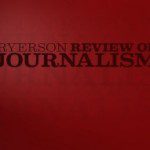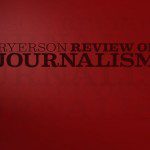Libel Law: The Chilling Effect
The journalist’s badge. That’s how Ron Adams, host of CBC Radio’s Media File, referred to getting sued. He was questioning Jock Ferguson of The Globe and Mail about libel chill. Lawsuit phobia, if you prefer-the notion that the threat of fighting legal actions, with their high costs in time and money, often inhibits aggressive reporting. For some journalists, getting sued may well be a badge, a testament to their profession. For many others, including those who make the final decisions, the possibility can be intimidating in the extreme.
Though there is nothing like a consensus on how pervasive libel chill is in Canada, it has nevertheless become the basis of a movement to liberalize our libel laws, particularly their onus on the media to prove the truth of what they publish or broadcast. American law, under which the burden of proof is on the plaintiff, is looked to as a model.
But many Canadian editors don’t want major revisions in the law, especially if they lead to adopting US standards, which the editors see as encouraging irresponsible reporting. And media lawyers, such as Stuart Robertson of Blake, Cassels & Graydon, make the case that having to prove truth ensures that the media are doing their job-namely, being accurate. Robertson, whose firm is one of the largest in the country with 240 lawyers, says “The law doesn’t do anything that the editors themselves don’t do…Not because they’re terrified of libel law, but because they want to get it right.” Viewed this way, current libel legislation is more a useful check on reporting than a hindrance.
And as Jock Ferguson made clear on Media File, it certainly didn’t hinder the Globe last fall when it ran “Behind the Boom,” an eight-part series exposing the corruption surrounding land development in York Region, a formerly rural municipality north of Toronto. Ferguson and co-writer Dawn King spent 10 months interviewing over 200 people, working closely with lawyers and even allowing counsel to meet three controversial sources, all so they could get the story straight. For their efforts, the Globe has been served with a libel notice to the tune of some $20 million.
But the story had another more important effect. After reading about the close ties between city councillors and developers, and about the conflicts of interest, voters were able to bring their outrage to the polls. The result: Allan Duffy, the mayor of Richmond Hill, and Carole Bell, the mayor of Markham, were defeated. Now both face investigation by York Regional and Ontario Provincial Police.
Under the threat of litigation, the Globe made sure its stories were airtight. “We wrote only what we could prove. There were a number of things we were close to proving, but we wrote only what we could prove,” says Paul Palango, the paper’s city editor. And that, as far as Palango is concerned, is as it should be. Being able to back up what’~ printed is a given. It doesn’t have to limit reporting. The “Behind the Boom” series is proof that the media can do their job within the existing legal framework. As for the Globe, it’s confident that if it should go to court it will win. Palango feels strongly that this kind of aggressive, thorough reporting is the best way to fight the chill. It all comes down to getting the goods, being determined and publishing the stories.
Many editors share this conviction. While those at large dailies such as The Montreal Gazette and The Toronto Star pride themselves that their own coverage is just as intense, others acknowledge that the chill is real.
So does Stephen Bindman, president of the Centre for Investigative Journalism and national reporter at The Ottawa Citizen. “Libel chill is certainly out there,” he says. “I think most reporters can give you an instance of someone saying ‘Oh well, I’ll sue you,’ and if it doesn’t necessarily stop you from doing the story, it at least gives you cause for concern.”
That’s the consensus among the CIJ’s thousand or so members across the country, according to Bindman. However, he stresses that there is no consensus on how widespread a problem the chill is.
For its part, the Globe isn’t worried about the 130 notices it’s received over the past five years. And it’s unlikely that any of them will go to court. This situation is typical of Canadian libel actions. Although there are no statistics, most media law specialists agree that over 90 percent of all libel actions never go to trial.
But for The Ottawa Citizen, the issue is not whether an action actually goes to trial: it’s the “cause for concern” Bindman speaks of. And that’s why the Citizen cited libel chill as one of the reasons why the laws should be changed. In its much publicized defence of a suit brought by former defence minister Robert Coates, the paper’s lawyers argued that current libel legislation infringes on the freedom of expression guaranteed in the Charter of Rights and Freedoms. The charter challenge failed and the action was settled out of court but some important questions remain. Do the laws need revision? If so, should they take the American form?
Here’s what happened. While on an official tour of West Germany in 1984, Coates anda couple of his aides snuck off one night to Tiffany, a strip joint just outside the Canadian Forces base at Lahr. On February 12, 1985 the Citizen reported the escapade and said that the evening’s jaunt may have posed a security risk. Three hours after reading the story, Coates resigned his portfolio and announced his intention to sue. In his article “Reversing a Chilling Myth” for Content magazine last fall, University of Western Ontario law professor Rob Martin said the Citizen had an adequate defence within the existing laws to argue the case. It could have proven the truth of the statement or used the plea of fair comment to vindicate itself. Instead it spent a million dollars challenging the validity of the existing laws and accomplished nothing.
But the paper was looking to change legal history, to deviate from hundreds of years of precedent. It was fighting for reform-the American way. As it is, Canadian courts presume that the words printed or spoken in the media are false, that the defendant is acting out of malice and that the plaintiff is entitled to damages. In the States, at least in the case of a “public official”-and this can be anyone from a policeman to a movie star, there is no absolute definition-the situation is reversed and the onus rests with the plaintiff not only to prove that the words are false but that they were published or broadcast with malicious intent.
Critics of the Canadian system, the Citizen in particular, say the burden of proof is too restrictive. Knowing something is true and being able to prove it in court are two different things. Neil Wilson, one of the lawyers who represented the paper in its fight against Coates, says he knows of situations where stories have been pulled – stories that were accurate but couldn’t be proven in court. Going the American route would certainly make the journalist’s job easier, but there are still those like Marq de Villiers, editor of Toronto Life, who fear the consequences of such a move. De Villiers, whose magazine is facing the largest libel suit (launched by the Reichmann family) in Canadian history, says, “In the US, in some instances, it has gone too far and it has become virtually impossible to prosecute a successful libel claim and I don’t agree with that. The press should be held accountable and I think in the US it has made for sloppy journalism.”
It has also made for big financial problems. Ever since the US Supreme Court ruled that public officials could not recover damages unless they proved malice on the part of the defendant, the number of actions and the amount of damages have soared. The court decided to give journalists the freedom to make mistakes in the hope of encouraging open discussion and debate. With all of the onus on the plaintiff, the judges thought the number of libel suits would decrease and the libel chill would be warmed. That was 25 years ago and today the situation is worse. It seems that the right to err has led to the very sloppiness de Villiers fears.
According to the latest statistics, in the US since 1980 there have been over 30 damage awards of one million dollars or more in media libel actions, with three of those greater than US$25 million. The good news is that only one damage award over one million dollars has been upheld, and the average award after all appeals have been exhausted is just under $150,000. The bad news is that legal fees before trial have increased in the last six years to estimated $150,000.
That’s costlier than the highest damages ever awarded in Canada. Last year, the Supreme Court of Canada upheld the 1978 Quebec Superior Court award of $135,000 in the case of civic politician Gerald Snyder against The Montreal Gazette. Before the record Snyder suit, awards throughout the country usually ranged from under $1,000 to $75,000. But since there is no ceiling on damages, that could easily change pending the outcome of the Reichmann family’s action against Toronto Life.
The billionaire Reichmanns are suing the magazine for $102 million. The dispute is over an article that ran in the November 1987 issue. In it, freelance writer Elaine Dewar traces the rise of the Reichmann family fortune. The Reichmanns claim the legitimacy of their business dealings is being questioned and the family honor is at stake.
If Canada does move in the southern direction, the outcome will likely be more of the same: massive and numerous libel suits, making the Canadian media that much more susceptible to libel chill. And what about the quality of reporting? What happens when journalists are freer to make mistakes? In the US, Westmoreland vs. CBS et at and Sharon vs. Time are indications. In the first case, General William C. Westmoreland sued CBS for US$120 million. The Uncounted Enemy: A Vietnam Deception, a documentary that ran in 1982, charged the retired four-star general with lowballing estimates of enemy strength to show progress in the war. In other words, CBS accused Westmoreland of lying to his superiors, his president and the American people. In the second case, Time charged Ariel Sharon, then defence minister of Israel, with encouraging the massacre of hundreds of noncombatants, including children, in Palestinian refugee camps at Sabra and Shatila in Lebanon. He sued the publication for US$50 million.
In both cases, the media did not take the time to verify the facts or their sources; they presented what they thought was true, not what could be proven true. In the end, the credibility of both stories took a beating. Nevertheless, Westmoreland dropped his action in 1985 because, in order to win, he would have had to prove malice on the part of CBS, an impossible task. And a month earlier, the suit initiated by Sharon was dismissed. Again, even though he was able to prove that what the magazine had printed wasn’t true, he could not prove that Time published the story knowing it was false.
In her book Reckless Disregard, which examines both trials, Renata Adler says that CBS and Time were proceeding on dubious principles. It was their duty, or so they thought, to resist the chilling effect at any cost. And that resistance meant standing by their stories even though they were wrong.
That doesn’t happen here and Stuart Robertson says it’s because the same stigma isn’t attached to making honest mistakes. In Canada there is a greater readiness to admit a mistake, and to apologize or print a retraction for it. “In the US it’s a different story. There it’s not just a question of admitting you’re wrong. If you do, then that’s equivalent to admitting negligence,” says Robertson.
So the American media may be freer to make mistakes but the Canadian media are freer to atone for them. And while most Canadian journalists feel there is room for improvement in our libel legislation, they’d rather abide by the laws as they stand than see wholesale changes.
There is another argument for maintaining the laws Patrick O’Callaghan, former publisher of The Calgary Herald, feels that having to prove the truth is necessary not only to prevent sloppiness but to protect the rights of the individual: “I think it’s only right that the media should not have open season to libel and defame as they will, without expecting the person being defamed to have some rights under the law. You can’t expect a free ride by claiming the right to free and untrammeled speech.”















